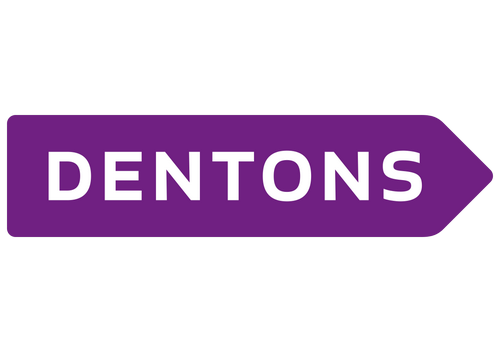Please find below information regarding certain legislative acts adopted by the Ukrainian state authorities within the last 14 days that, in particular, affect the Ukrainian energy sector.
General Legislation on Introduced Quarantine Measures
The Cabinet of Ministers of Ukraine (the “CMU”) adopted Resolution No. 211 dated 11 March 2020 (restated based on Resolution No. 215 dated 16 March 2020) On Prevention of the Spread on the Territory of Ukraine of Acute Respiratory Disease COVID-19 Caused by Coronavirus SARS-CoV-2 (the “Quarantine Resolution”) which is available in Ukraine at https://ips.ligazakon.net/document/kp200211?an=27.
The Quarantine Resolution sets forth the following key provisions:
- The quarantine is established in the entire territory of Ukraine from 12 March 2020 until 3 April 2020.
- The following activities have been prohibited:
- attendance of educational establishments by students and pupils until 3 April 2020;
- arrangement of mass (cultural, entertainment, sport, social, religious, advertising and other) events/activities in which more than 10 persons participate, except for securing work of state authorities and self-governing authorities from 17 March 2020 until 3 April 2020 (this prohibition might apply to any construction activities, in particular, related to renewable power plants or oil&gas production related activities where more than 10 persons participate);
- operation of any business entities which envisage visitors, in particular various retail and entertainment activities, except for retail of food products, fuel, medical products and devices, etc., from 17 March 2020 until 3 April 2020;
- regular or irregular automobile transport of passengers by automobile in city, intercity or interregional transportations (except for cars), transportation of more than 10 passengers at the same time in public transport from 18 March 2020 until 3 April 2020;
- transport of passengers by metro from 17 March 2020 until 3 April 2020;
- transport of passengers by railway transport of any types with certain minor exceptions approved by relevant state authorities;
- It was recommended to all state and local self-governing state authorities as well as any enterprises or establishments to organize work by shifts and subject to technical possibility – work over the Internet.
In addition, on 13 March 2020 the President of Ukraine issued Order On Resolution of National Safety and Defence Council of Ukraine dated 13 March 2020 On Urgent Measures as to Ensuring National Security in Circumstances of the Outbreak of Acute Respiratory Disease COVID-19 (“Presidential Order”) which is available in Ukrainian at https://ips.ligazakon.net/document/U087_20?an=13&hide=true. In accordance with the Presidential Order the CMU shall take, inter alia, the following measures:
-
- closing for 2 weeks starting with 17 March 2020 of the border for regular passengers’ transport;
- prohibition for any entrance by foreign or stateless citizens to the territory of Ukraine, except for persons having residency in Ukraine, and at a separate decision of the Minister of Foreign Affairs of Ukraine by accredited employees of embassies, consulates, etc.
Please note that during meeting of the CMU on 25 March 2020 it was discussed to extend the quarantine for 30 more days and make quarantine measures stricter.
Laws of Ukraine Adopted to Implement Quarantine Measures, Arrange Prevention of Spread of COVID-19 and Support Business
In order to implement quarantine measures mentioned above as well as certain other measures the Ukrainian parliament adopted the following laws:
- Law of Ukraine on Introduction of Changes to Certain Legislative Acts of Ukraine, caused by the Occurrence and Spread of Coronavirus Disease COVID-19 No. 530-IX dated 17 March 2020 (Law No. 530-IX);
- Law of Ukraine on Introduction of Changes to Certain Legislative Acts of Ukraine, Aimed at the Increase of Access to Medicinal Products, Medical Devices and Ancillary Products which Are Purchased by a Person Authorized to Carry Out Purchases in the Healthcare System No. 531-IX dated 17 March 2020 (Law No. 531-IX);
- Law of Ukraine On Introduction of Changes to Tax Code of Ukraine (the “TCU”) as to the Increase of Access to Medicinal Products, Medical Devices and Ancillary Products which Are Purchased at Funds of the State Budget, and Creation of Conditions for Purchase in the Sphere of Healthcare Protection at the Funds of the State Budget No. 532-IX dated 17 March 2020 (Law No. 532- IX);
- Law of Ukraine on Amendments to the TCU and Other Laws of Ukraine to Support Taxpayers in the Course of Taking measures Aimed at Preventing the Occurrence and Spread of Coronavirus (COVID-19) No. 533-IX dated 17 March 2020 (Law No. 533- IX).
Almost all provisions of the above-mentioned laws entered into force on 18 March 2020 (except for Law No. 532-IX, most provisions of which will enter into force on 1 April 2020).
The most important changes affecting the business are introduced by Law No. 530-IX and Law No. 533-IX, in particular:
- Administrative and criminal liability for violation of quarantine measures and legislation
- in case of violation of quarantine measures introduced by law or decisions of local self-governing authorities, the administrative fine for individuals is from UAH 17,000 (approximately EUR 560) up to UAH 34,000 (approximately EUR 1120) and for officers of companies/officials – from UAH 34,000 (approximately EUR 1120) up to 170,000 (approximately EUR 5,600). Assumingly, the relevant fine may be imposed for each case of violation. The relevant cases are heard and fines may be imposed by courts even though relevant protocols may be executed by police, healthcare and sanitary authorities, as well as by certain other authorities;
- the criminal liability is envisaged for violation of anti-epidemic rules and norms if such actions caused or deliberately could have caused the spread of these disease. The sanction is the fine from UAH 17,000 (approximately EUR 560) up to UAH 51,000 (approximately EUR 1695) or arrest up to 6 months or restriction freedom or imprisonment up to 3 years. If the mentioned actions caused death of people or other grave consequences, the sanction is imprisonment from 5 up to 8 years. It is unclear how in practice the courts will distinguish administrative and criminal offences (without aggravated circumstances) because each violation of quarantine measures may be potentially viewed as such that deliberately could have caused the spread of disease. Given that the courts temporarily do not function due to the quarantine measures, it is unclear when relevant clarity will be established.
- The quarantine as force majeure
- Quarantine introduced by the CMU is expressly listed as force majeure under Article 14 of Law of Ukraine on Chambers of Commerce of Ukraine. Thus, Chamber of Commerce of Ukraine and authorized regional chambers of commerce may certify quarantine measures as force majeure events and issue the certificate on such events within 7 days from the date of the relevant request.
- Please note that even though the quarantine measures may be now considered as force majeure in order to be released from liability for contractual breach under Ukrainian laws in accordance with Article 617 of the Civil Code of Ukraine the breaching party shall prove that such breach occurred because of force majeure and Article 218 of the Commercial Code of Ukraine requires to prove that it was impossible to fulfill contractual obligations due to force majeure events (a bit higher standard) and the said Article of the Commercial Code of Ukraine allows the parties to deviate from the said provision in the relevant contract. In any event, the absence of necessary goods in the market or funds to fulfil obligations may not be considered as force majeure. Therefore, the quarantine measures automatically may not be considered as force majeure events discharging liabilities of the parties under a contract. It is necessary to consider provisions of each particular contract and circumstances case to evaluate whether there are grounds for release from liability for the contractual breach. Please note that even though the performance of the contract may take place in Ukraine, laws other than Ukrainian may apply under the contract and there could be different interpretation of the force majeure and release of liability for contractual breach under the respective laws.
- Employment legislation
- Article 84 of the Labour Code of Ukraine (the “Labour Code”) and article 26 of the Law of Ukraine On Vacations are now supplemented with a new paragraph stipulating that, if the CMU establishes a quarantine, the period of unpaid vacation is not limited to 15 calendar days. It means that an employee may be granted an unpaid vacation upon his/her consent for the entire period of quarantine established by the Cabinet of Ministers of Ukraine. Unpaid vacation for the period of up to 15 calendar days is retained and may be granted to an employee upon his/her consent for a reason other than quarantine. More information from my colleagues about implications of quarantine measures are available at https://www.dentons.com/en/insights/alerts/2020/march/19/amendments-to-ukrainian-labor-law-related-to-the-coronavirus-covid-19-epidemic
- Tax Changes
- Such changes are described by my colleagues at https://www.dentons.com/en/insights/alerts/2020/march/17/kyiv-tax-newsletter. The one which directly affects energy project is abolition of land tax on land plots and lease payments for state- or municipally-owned land plots that are owned or used by individuals or legal entities in business activities for the period from March 1 until April 30, 2020. Given that most of renewable energy projects usually lease state or municipally owned land plots, this tax break could be considerable for projects which are basically on hold now while expecting changes in the legislation regarding scheme of support.
Operation of courts during quarantine measures
Even though above-mentioned qurantine measures did not directly concern Ukrainian courts’ activity, on March 17, 2020, the Council of Judges of Ukraine (“Council”) approved recommendations for the working regime of Ukrainian courts for the period of the COVID-19 quarantine.
The Council recommended to set up the following special regime of work in all courts of Ukraine, in particular:
- to inform all participants of the court proceedings that they have the opportunity to adjourn the court hearing due to the COVID-19 quarantine;
- to cancel all events not directly related to adjudicating disputes (e.g., conferences, round-tables, workshops, etc.);
- to limit the access to the court premises of persons who are not participants of court proceedings (under the general rule, court hearings as well as attendance of court premises are opened for public), or persons who have evident symptoms of respiratory disease;
- to reduce the quantity of the court hearings ; and
- to recommend the parties to continue the review of court cases under a written procedure (i.e. without participation of parties’ representatives).
The Council also recommended that all persons submit all documents to courts of Ukraine (e.g., claims, pleadings, appeals etc.) by registered post, fax, email or other remote means (i.e. not through court offices by hand).
More information from my colleagues on peculiarities of courts operation and legal proceedings during the qurantine mesures you can find at https://www.dentons.com/en/insights/alerts/2020/march/24/the-covid-19-outbreak---implications-for-ukrainian--legal-proceedings.
Please note that our firm Dentons created COVID-19 (Coronavirus) hub, available at https://www.dentons.com/en/issues-and-opportunities/covid-19-coronavirus-hub for support of our clients in more than 70 countries. This source provides the following:
- A global taskforce who will respond to the COVID-19 queries your organization has
- A COVID-19 mailing list – so you can receive insights direct to your inbox
- A global tracker for employers regarding your COVID-19 responsibilities
- A free remote working readiness consultation: Click here to request a discussion to check you have what you need in place to implement effective remote working protocols for your inhouse legal team.
We will be happy to assist you!
This information does not constitute legal advice and is merely the opinion of the author.




























